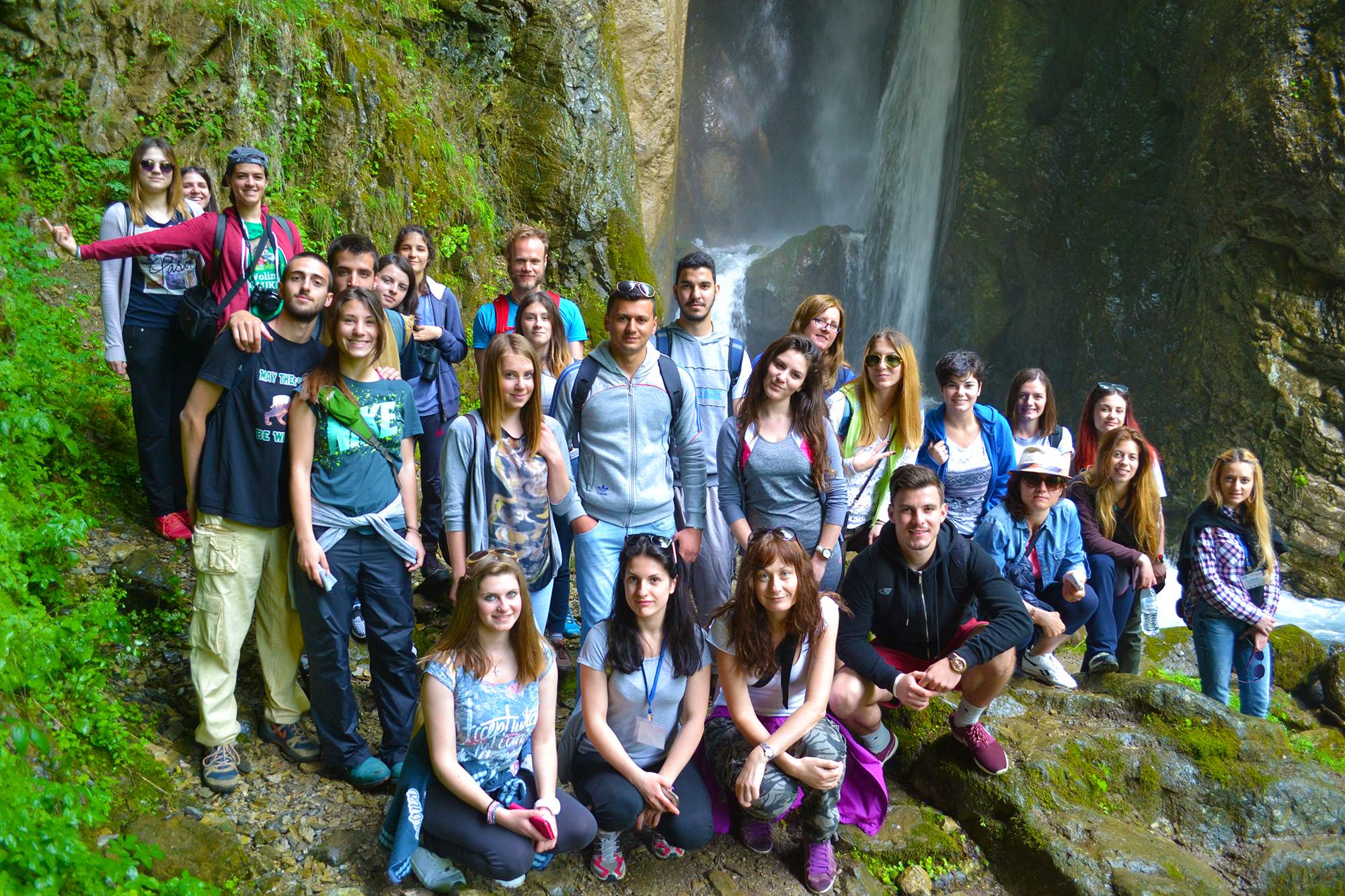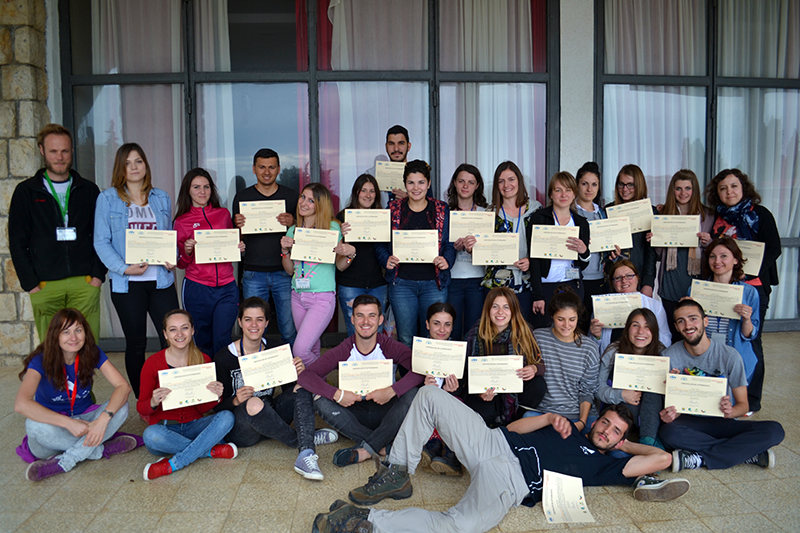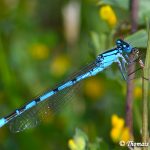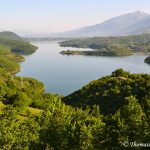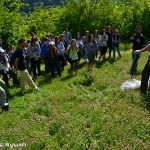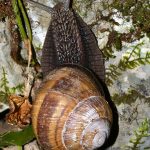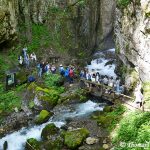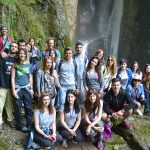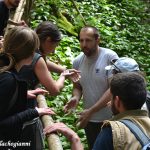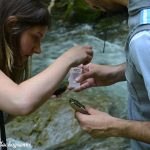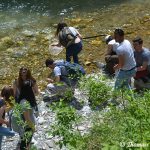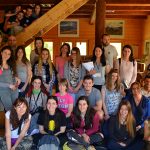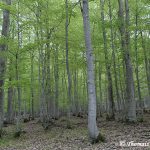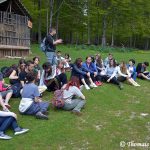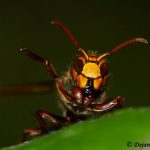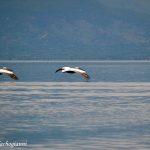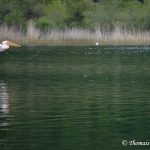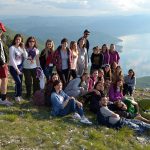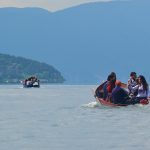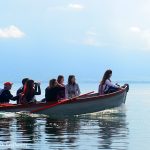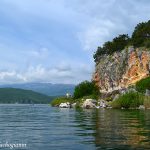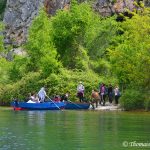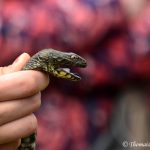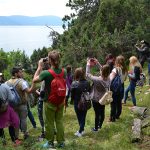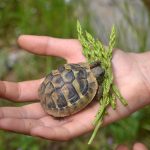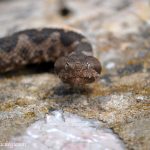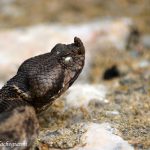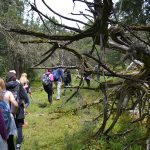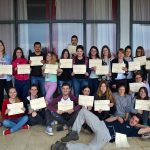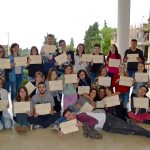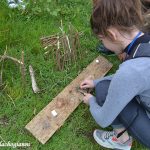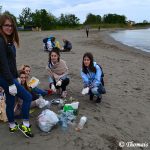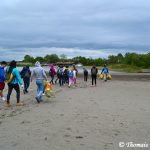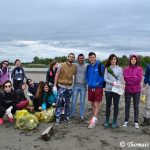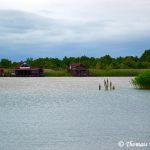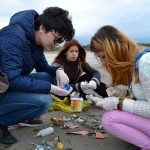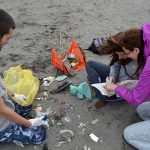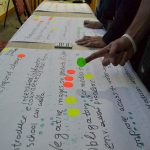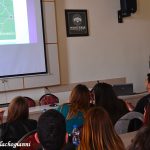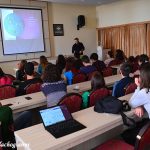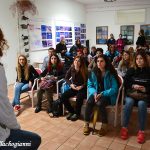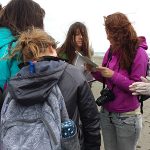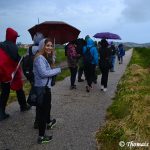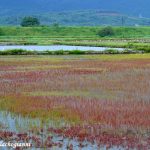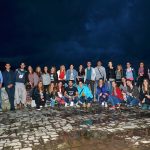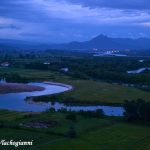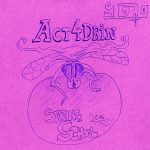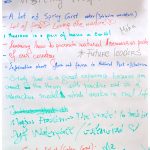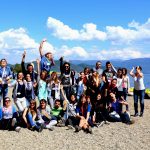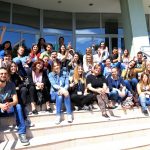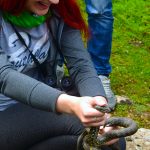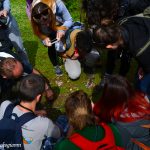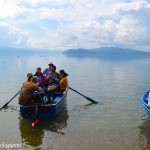A first of its kind transboundary Spring School took place in southwest Balkans within the framework of the Act4Drin entitled ‘The natural wealth and legacy of the Drin River Basin: from field observations and knowledge to collective actions towards protecting freshwater ecosystems’. The Act4Drin is an initiative aiming at raising public awareness, enhancing knowledge and empowering NGOs to protect and conserve freshwater ecosystems in the Drin River Basin.
From 7 to 15 May 2016 some 28 natural sciences students from the Drin Riparian countries, namely Albania, FYR of Macedonia, Montenegro and Greece went beyond ‘just learning’ and were ‘immersed’ in nature, experiencing thus the sense of inner harmony that only nature offers to humans.
The 9-day Spring School introduced students to the fundamental importance of the Drin River Basin for the region’s ecosystems, livelihoods and overall well-being. Through an interactive and collaborative experience the significance of biodiversity in fostering collective awareness and strengthened social, economic and spiritual well-being was highlighted. Students acquired knowledge, improved their critical thinking and renewed their motivation to become actively involved in their local communities and national policy processes for the preservation of the Drin River Basin natural heritage.
Students experienced an exceptional blend of collective and collaborative learning on the science-policy-society interface and fascinating field trips to the Drin River Basin. Students visited key conservation sites along the Drin and carried out field work, such as Golem Grad in Prespa lake, Galicica National Park, the Bird Protection centre in Ezerani, the Mavrovo National Park, Jablanica Mountain, Ohrid lake, Skadar lake, Ulcinj saltern and Buna/Bojana Delta.
In a joint quest for knowledge and through a dynamic and holistic learning process, students experienced sharing common values for a better future, such as mutual respect and respect for nature, multiculturalism, solidarity, democracy, social responsibility and sustainable development.
The Act4Drin Spring School was implemented within the framework of the Act4Drin, a CEPF funded project led by MIO-ECSDE and in collaboration with BIOSFERA, EDEN, GREENHOME and MES. The Spring School was carried out in collaboration and with the support of BIOSFERA, EDEN, MES, GREENHOME, GRASHNICHA, PPNEA, PROGEO, SOCA TRIPS and the University of Tirana, under the auspices of the University of Korca.
Act4Drin Spring School materials
- Act4Drin Spring School Course Overview
- Act4Drin Spring School Agenda
- List of Participants
- Thomais Vlachogianni | The natural wealth and legacy of the Drin River Basin: inspiring our collective actions
- Thomais Vlachogianni | Living well in harmony with the Drin – Brief overview
- Thomais Vlachogianni | Transboundary water resources management: from field observations & knowledge to collective actions towards protecting freshwater ecosystems
- Milan Vogrin | Baseline biodiversity surveys, appraising the status of migratory bird and/or species
- Milan Vogrin | The basics of nature photography
- Dejan Kulijer | Odonata as indicator species of freshwater ecosystem health
- Dejan Kulijer | Karst freshwater habitats: identification and participatory conservation planning of threatened invertebrate and fish species in Neretva
- Gjoko Zoroski | Smart Water Use in Ohrid Lake
- Biljana Rimcheska | Water for lakes, bog, streams and people on Jablanica Mountain: a pilot project for integrated water resources management
- Dejan Panovski | Enabling Transboundary Cooperation and Integrated Water Resources Management in the Extended Drin River Basin
- Thomais Vlachogianni | Empowering NGOs to protect and conserve freshwater ecosystems in the Drin River Basin: From theory to practice
- Merita Dollma | Freshwater ecosystems: Over-consumption & the looming ecological collapse
- Ardiana Mici | Governance of natural resources in transboundary freshwater settings
- Spartak Koci | The Balkan Lynx Programe BLRP
- Azra Vukovic | Efforts towards establishing Sasko lake as a protected area
- Miha Skocir | Tourism development & sustainability in Soca river
- Thomais Vlachogianni | Litter in freshwater ecosystems
Highlights
Apart from the field visits and field work, some of the the highlights of the Spring School include:
- contribution of the students in assessing the views and perceptions of local communities along the Drin River Basin on litter and waste;
- the participation of the students in riverine litter surveys in the Buna/Bojana delta;
- the elaboration of presentations on the natural and cultural heritage of the Drin River Basin:
- Biljana Rimcheska highlighted the unique case gastropods in Ohrid lake and their high levels of endemism;
- Milica Kandic & Kanjuh Tamara focused on Ada Bojana and the mysterious Anguilla Anguilla;
- Marija Micunovic presented a series of protected flora species: Quercus robur, Ramonda serbica, Fritillaria gracilis,Trapa natans, etc.;
- Bisera Vlahova provided insights on the International Waterbird Census carried out in the region;
- Thomai Anastasiadou shed light on the wet meadows’ importance in Prespa Park;
- Aurora Zylaj provided info on the zoobenthos in Prespa;
- Arber Sulstarova highlighted the massive number of medicinal and aromatic plant species in the Drin River Basin;
- Hamid Merdita outlined the ecosystem services the Drin River Basin provides;
- Andrej Gonev focused on the mysterious & elusive Balkan Lynx;
- Ina Dollma shared information on the Dibra Region & the value of the Black Drin;
- Elena Shuke highlighted the importance of lake Ohrid as a museum of living fossils;
- Petrina Stefo immersed the audience in the wonders of ‘ordinary’ places such as Lesser Prespa;
- Anxhela Tefik focused on the human pressures in lake Ohrid;
- Romina Balla stressed the transboundary character of human induced impacts on the Drin River Basin;
- Age Martini identified the sustainable tourism opportunities in the Drin River Basin;
- Martin Delevski showcased the loner Lutra lutra;
- Erjona Uka underscored the species of Global Conservation Concern in the Ohrid-Prespa basin;
- Sofija Videska presented an enchanting creature, the European Tree Frog;
- Savo Vuksanovic, Jelena Popovic, Jovana Dokic and Adrijana Micanovic showcased a wealth of species that dwell in the region;
- Rozeta Gradeci focused on the threats and pressures in the Drin River Basin;
- Denada Ziu stressed the threats associated with hydro power plants; and
- Klea Konci finished the session with the moto ‘think globally act locally!’
Photo gallery
